
soupçon/ˈsuːpsɒn,ˈsuːpsɒ̃/ noun
1. a very small quantity of something; a slight trace, as of a particular taste or flavorSunday Soupçons is where I scribble mini-reviews for books I don’t have the brainspace/eloquence/smarts to write about in depth – or if I just don’t have anything interesting to say beyond I LIKED IT AND YOU SHOULD READ IT TOO!
Three lovely reads!

Genres: Adult, Fantasy
Representation: (possibly?) Genderqueer MCs
PoV: Third-person, past-tense; multiple PoVs
ISBN: 1998133109
Goodreads

Thrice-cursed bard and warrior-elf Tamsin wakes up in Elfland after what might or might not have been his death, healed and hale for the first time in millennia. Somewhat confused but not entirely unhappy with this turn of events, he sets off in the hopes of finding a way home ...
A standalone tale of friendship, family, and fair Elfland.
I’ve been a Victoria Goddard die-hard for a while now, but Bone Harp is the first book of hers I’ve read (and the first she’s published in quite a while) NOT set in her Nine Worlds universe, aka the setting of such beloveds as Hands of the Emperor and the increasingly delightful Greenwing & Dart series (which genuinely gets better and better with every instalment). So I wasn’t sure what to expect from this one.
It turned out to be an incredibly beautiful, very soft and gentle, fantasy of healing and recovery; of coming home from war and learning the ways of peace again. At the same time, it’s an exploration of how Elfland changed while so many of its people went away to war, and how the Elves basically broke into two separate cultures; those who stayed behind, and leaned further into magic and its wonders, and those who went away and came back, who have almost completely forsaken magic and are left uneasy by it – even though it really is their birthright.
The backstory is slightly reminiscent of the Silmarillion – the Enemy (who we learn almost nothing about, really) stole a sacred fire from Elfland, and seven brothers swore a soul-binding oath to retrieve it; many of the Elves followed those brothers, and their prince, away Over the Sea and into a war with the Enemy that lasted centuries and centuries.
But that’s all done with now. Bone Harp is set a long time after all that (although we get looks into the past), and there is not a whole lot of plot – it might be one of the most plot-less books I’ve ever seen. That worked beautifully for me though; Goddard’s gorgeous, introspective, rich prose is on full display, languid and indulgent, and I was more than happy to linger over small, perfect details, or sink into the stunning descriptions of Elven magic and music (and the spellsongs that are both), and watch Tamsin slowly heal from his traumas with the help of two young Elven girls out on an adventure.
I think Tamsin got slightly more page time, but I really liked that the book was divided between him, and Klara – his not-quite-lover, best friend and truest companion, who stayed in Elfland while Tamsin and his brothers and father went to war. Kind of in rejection of the war, kind of in response to so many of her people going Over The Sea, Klara pushed her magic – the same kind of magic Tamsin wields, music-magic and song-magic – further and further, and those other Elves who stayed did the same. Tamsin and Klara were so close when they were young that they would often swap identities (with no one else being the wiser) and even while apart during the war, they continue/d to echo and mirror each other, as Tamsin also pushed his power to greater and greater heights while away. But where Tamsin became a warmage, Klara sought to create beauty, and grew somewhat eldritch and otherworldly even by Elven standards. In this way they both became, not quite leaders of their peoples (the Elves at home and the Elves Over The Sea) but…definitely both prominent, legendary figures. Klara isn’t a queen, but she does stand as a kind of representative or figurehead of the ‘magical’ Elves when the warriors start to come home; not a leader as such, but she holds her people in and under her hand, if that makes sense.
I thought it was beautiful and interesting, the relationship Klara and Tamsin had before the war, the way they grew in similar but opposing directions during it, how their hearts and magic remained linked even while they were separated. Especially the fact that Tamsin and Klara used to swap identities, pretending to be each other so well that no one else knew that they did this regularly; there’s something genderqueer about it, and in Tamsin’s indifference to being mistaken for a woman, that I hope gets explored more in future books (it’s also, potentially/probably, playing with the fact that the ‘classic’ take on Elves portrays them as very androgynous).
I think Goddard mentioned there would probably be a sequel. I hope so! Because Bone Harp is breathtaking, and I definitely want more of this. Not one to read if you’re looking for plot and/or action, but the perfect read if you’re looking for sweet, soft, languid magic.
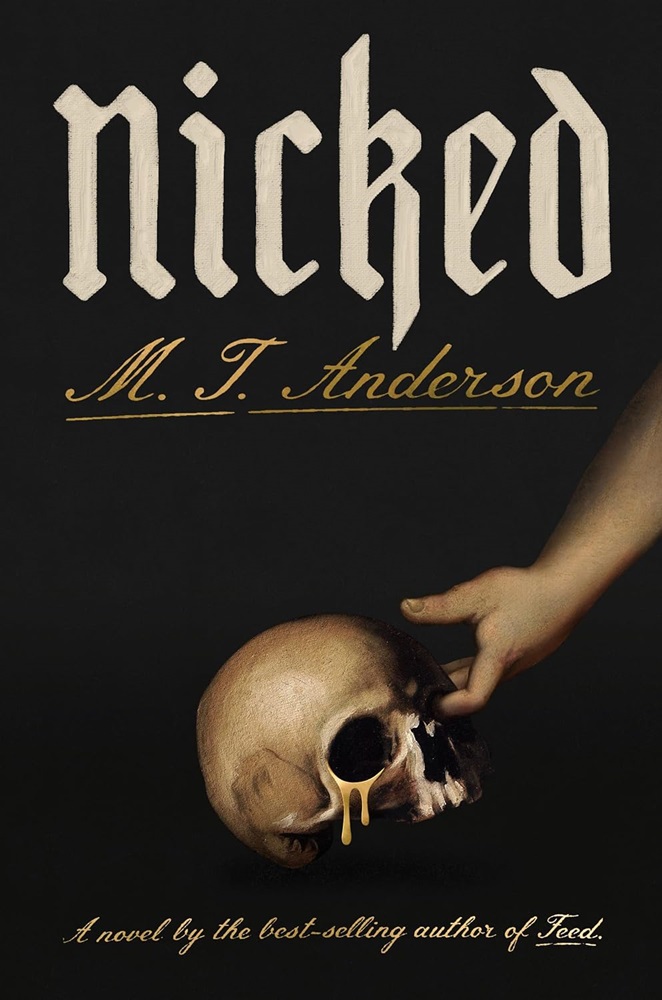
Genres: Adult, Fantasy, Historical Fantasy, Queer Protagonists
Representation: M/M
PoV: Third-person, past-tense; multiple PoVs
ISBN: 0593701615
Goodreads

From the award-winning and bestselling author of Feed comes a raucous and slyly funny adult fiction debut, about the quest to steal the mystical bones of a long-dead saint
The year is 1087, and a pox is sweeping through the Italian port city of Bari. When a lowly monk is visited by Saint Nicholas in his dreams, he interprets the vision as a call to action. But his superiors, and the power brokers they serve, have different plans for the tender-hearted Brother Nicephorus. Enter Tyun, a charismatic treasure hunter renowned for “liberating” holy relics from their tombs. The seven-hundred-year-old bones of Saint Nicholas rest in distant Myra, Tyun explains, and they’re rumored to weep a mysterious liquid that can heal the sick. For the humble price of a small fortune, Tyun will steal the bones and deliver them to Bari, curing the plague and restoring glory to the fallen city. And Nicephorus, the “dreamer,” will be his guide. What follows is a heist for the ages, as Nicephorus is swept away on strange tides—and alongside even stranger bedfellows—to commit an act of sacrilege. Based on real historical accounts, Nicked is a wildly imaginative, genre-defying, and delightfully queer adventure, full of romance, intrigue, and wide-eyed wonder at the world that awaits beyond our own borders.
I received this book for free from the publisher via NetGalley in exchange for an honest review. This does not affect my opinion of the book or the content of my review.
I really had no idea what to expect of Nicked, but it turns out that as well as being elegantly written about an inherently cool topic – a saint heist! – it’s also funny, wry, hopeful, and clever. And inspired by true events! Excuse me while I go down a rabbit hole of research into the history of saint-stealing!
Nicked says quite a lot without directly saying it – there’s a fair bit of implicit commentary (is that a thing?) on what we’d now call the Catholic Church, not so much on the faith itself (although also that, specifically the obsession with saints and saint-worship) as on the higher-ups who pull the strings and make decisions for everyone else. For example, it’s not poor Nicephorus’ dream that sets this whole thing off – the wealthy of Bari have already decided Bari must have a saint’s relics, and their motivations are certainly not religious. The Church higher-ups who help arrange the expedition are also not actually doing so out of faith; all those movers and shakers are in it for the money and the prestige, or both. Nicephorus’ dream is the thinnest of gauze tissues with which they try to hide their own greed – one wonders who they think they’re fooling, because it’s not each other, and it’s surely not God. Do these people even believe at all? Judging by the way everyone refuses to ever explicitly say they are committing blasphemy (or would it be sacrilege?), I think they know God wouldn’t be happy with them – which they presumably wouldn’t worry about if they didn’t believe?
Or maybe it’s more like, ‘I don’t know if He’s real, but let’s act like He is just in case, and also He totally won’t know what we’re really up to if we never say it outright’.
Which is more than a bit ridiculous, but it’s a very self-aware ridiculousness, wry and charming, that’s woven throughout the whole book. At the same time, there’s a streak of quite lovely earnestness, mostly coming from Nicephorus, who is a dear and a darling with unexpected depth – not because he’s naive (he isn’t) but he may be the only real believer among the cast, and I was surprised to find myself liking him for it. (Probably because he’s not stuffy and arrogant about it.) I adored his growth over the course of the book, and the misadventures he got into, and his ending! I would happily read a whole series about the shenanigans he gets into, but Nicked is perfect as a standalone too.
(…And I only just realised that Nicked, as a title, echoes St Nicholas, as in, you’ve been St-Nicholased! How did I miss that?!)
I don’t know anything about St Nicholas as a saint, so I have no idea if the stories about him contained in Nicked are genuinely part of his lore (…probably not the right way to refer to it!) or if Anderson made them up, but I loved how they were written, and the way Anderson tied them together and pulled morals from them. The prose is gorgeous in those parts – and it’s quite lovely and elegant in the rest of the book, quick and bright.
And the nuns. The not-nuns. I CACKLED.
Anyway, I strongly recommend this if the blurb sounds at all interesting to you, because it’s great fun and very human and the cast is marvellous. Going straight on my favourites shelf – I’m going to have to see what else Anderson’s written!
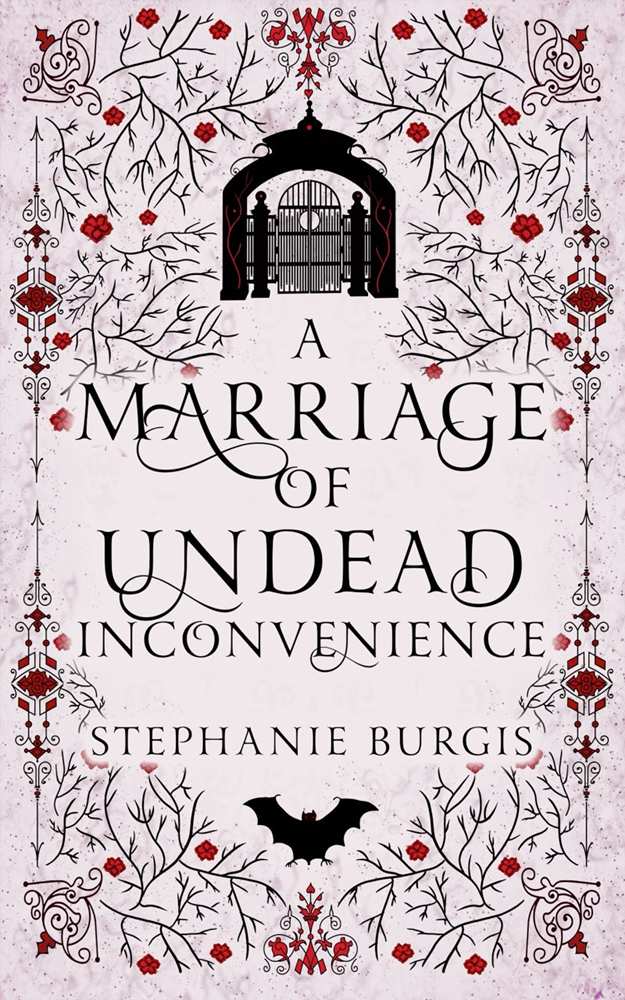
Genres: Adult, Fantasy, Historical Fantasy
PoV: Third-person past-tense
Published on: 5th August 2024
Goodreads

Margaret Dunhaven may have been forced into marriage with the sinister vampire owner of Shadowcroft Manor in order to fulfill a family obligation, but she's not about to stay trapped there for long. The beastly man doesn't even have any decent tea leaves in his kitchen!
However, when she realizes that she's not the only one who's been forced into this marital union, it's time to join forces with her unwanted new husband. If they can combine her scholarly skills with his ancient history, then, working together, they might just manage to reclaim her inheritance, break his curse, and find their freedom.
...Just so long as they don't fall in love along the way.
A witty and sparkling 17,000-word novella that puts a new twist on Beauty and the Beast in an alternate-history version of late 19th century England.
I received this book for free from the author in exchange for an honest review. This does not affect my opinion of the book or the content of my review.
A Marriage of Undead Convenience is exactly what it wants to be, short and sweet but with a nice bite to it. I’d almost call it cosy, for all that that Shadowcroft Manor itself is no such thing (it needs a proper scrub-up!); it’s a lovely wish-fulfilment romance, where the stakes are plenty high but nothing really terrible is going to happen, so you can just settle in somewhere comfortable to enjoy the story.
You know exactly what you’re getting from the (fabulous) opening line;
It was Margaret Dunhaven’s opinion that a marriage which constrained her to drink stale tea could not be described as “convenient” in any meaningful sense of the word.
Burgis does a great job at gently making it clear that Margaret doesn’t need a man, or marriage, while letting Margaret realise for herself that it is perfectly acceptable to want one, especially one who supports and appreciates and admires you. And there’s no getting around the fact that this kind of marriage is extremely convenient for a woman in this sort of setting (stale tea aside) – as Margaret herself says, there’s a great deal a married couple can do together that an unmarried woman can’t do at all, and why not avail yourself of that, when the man is a great one?
I love stories about scholars, and characters in general who have intense passions, and Margaret’s deep study of the Rose of Normandy delighted me. Her scholarliness infuses every aspect of her character and never goes forgotten, from her careful handling of age-old texts, to reflexively maintaining the order in which they’re stored, to how wonderfully appalled she is at seeing original sources mistreated – and that’s without going into her rivalry with another, complete asshat of a researcher who I badly wanted to punch in the face. What a despicable, yet depressingly believable, little man!
It’s the attention to detail that elevates A Marriage of Undead Convenience, like the (much better than the real-life version, imo) in-universe explanation for the name of the War of the Roses, or what exactly an ancient gem would look like, having not had the benefit of modern jewel-cutting techniques. It adds just a little bit of sparkle – the details, I mean, not the gem-cutting! – so that a sweet novella also has…a little ginger? I don’t know how to put it, but I suspect most readers know what I mean anyway.
I approve!
What have you been reading this week?


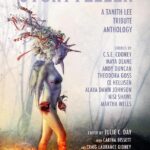

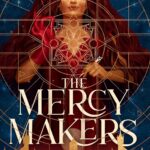

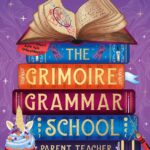
Leave a Reply